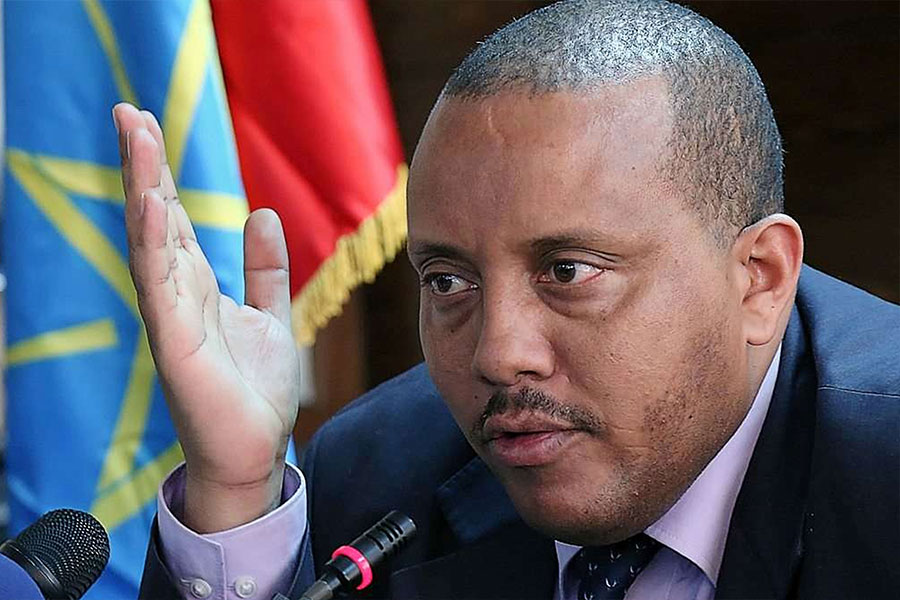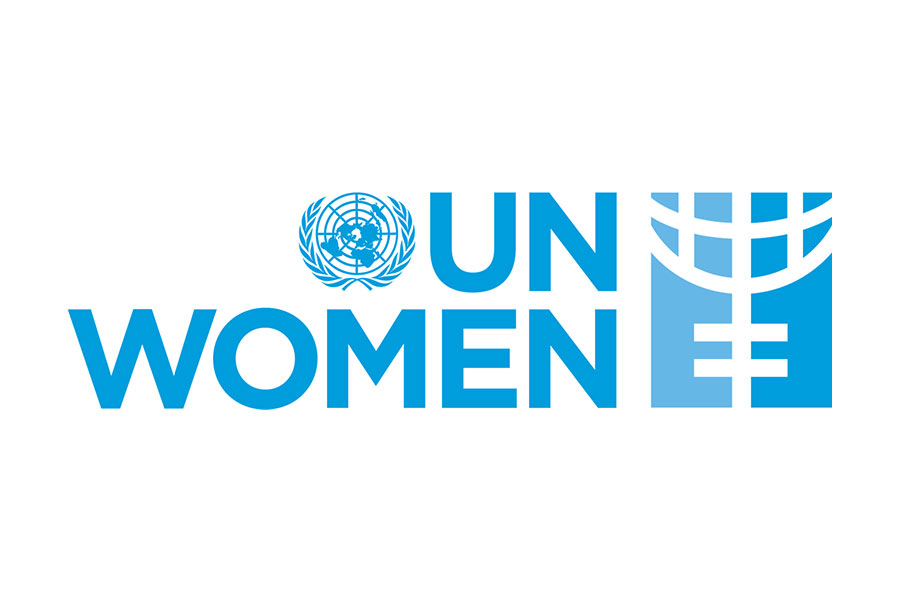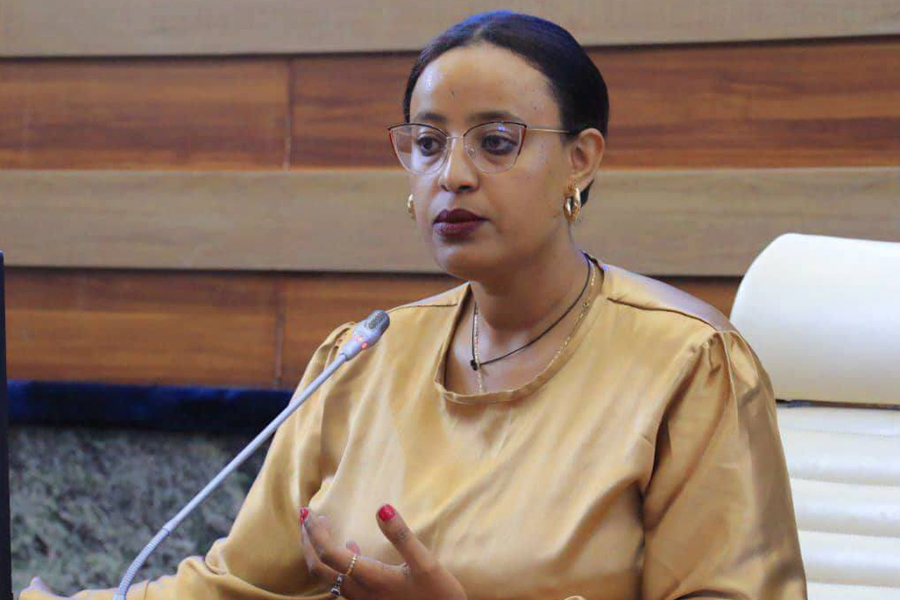
Oct 5 , 2019.
There is an elephant in the Ethiopian political room: conflict and violence that may be sporadic but remains persistent. There is an understandable reluctance to discuss it. Understandable because most people do not have enough information about what is going on other than scant news that it is happening. What comes out is perhaps conflicting and contradictory claims and counterclaims made in the service of partisan positions.
Those who may be in the know may also be concerned with getting caught in the crossfire of those involved. It is hard to imagine that the government, with all its security resources, is not in the know. It is. But it might be avoiding the discussion for fear of spreading panic. Whatever the reason for the reluctance, considering its persistence, it is strange, maybe even negligent, not to talk about it.
It is now almost four years since public demonstrations and political protests demanding reforms began. Though initially largely peaceful and billed as non-violent resistance, that pacifism did not last long. There were pockets of violence and burning of properties in some areas. Of course, there was the use of force by the security forces as well. The era of vertical violence deployed by state power to preserve the status quo soon led to a mixture with violence carried out horizontally between and among communities.
Although there was a brief lull with the initial excitement of the change of leadership and the coming to power of Prime Minister Abiy Ahmed (PhD) with promises of reform, it was short-lived. Barely months after he came to power, there was an explosion in Meskel Square that police said was an attempt on the life of the Prime Minister.
There was a continuation of the inter-communal conflict that has been simmering in the border communities of the Somali and Oromia regional states. There was the well-publicised conflict in Gedeo that resulted in massive displacements of entire communities. There were also the killings in Burayu that were covered extensively in the media, perhaps because it is proximate to the capital. There are on and off conflicts in Western Wollega in Oromia Regional State that refuse to go away. The same can be said about the situation in an area where the Qimant community lives in the Amhara region. There are many more.
It is puzzling, if not revealing, to observe that these pockets of violence seem to erupt suddenly and dissipate abruptly. Not before causing mayhem, unfortunately. But why they start and how they stop remains a mystery, if not subject to grand conspiracy theories.
The supposed reasons forwarded as possible causes have not been new. Contested boundaries between regions and communities have been around since the federal form of government was established in the mid-1990s. Indeed, inter-communal conflicts have happened here and there throughout the last 27 years and even before in several communities. But they were never this violent nor persistent. Both their intensity and frequency have grown exponentially.
The million-dollar question is, why?
It is foolhardy to speculate too much about specific incidents on a topic of such sensitivity. However, it is a dereliction of duty not to call attention to the suffering of millions of people.
Attempts to hide the need for discussions on the topic under the rug poses a danger of becoming a society that is desensitised to violence. Even worse, becoming a society where violence is legitimatised as a means of gaining and holding political power. In fact, it is not overblown to wonder if the lack of a grand bargain between political elites in Ethiopia that represent different political groupings in the country may not be one of the reasons for these conflicts.
The birthing of the reform out of resistance and the flexing of muscles rather than negotiation or bargain may have opened the door for a negative culture of using the threat of violence as a means to putting political agendas on the table.
Could it be that some have learned the wrong lesson of using the threat of or actual violence as a way to be taken seriously in the political world? Is it because some may have sensed a weakening of the power of the federal government’s ability to enforce law and order?
There are no easy answers. But it is not unreasonable to suggest it is probably a combination of all of the above and more.
What is clear for all to see is that the country needs a grand political elite bargain urgently. Some believe in the eternal, perpetual and indestructible Ethiopian civilisation on one side and deconstructionists who demand a completely new arrangement on the other. Many others on the sideline of the Ethiopian political landscape fall in the middle. No matter where a political group lies in this spectrum, there can be no peaceful way forward unless they sit together and bargain.
Granted, such bargaining is not easy. It demands humility to at least listen to other views. It is an admission that one is not the only answer to the country’s problems. And if it is to work, it ultimately requires making painful concessions. But the alternative is not cost-free either. Millions of citizens are affected and thousands have paid with their lives. That should weigh heavily on all political leaders no matter which camp they may be in.
In the meantime, the heaviest burden and the ultimate responsibility necessarily falls on the shoulders of those who are entrusted with the power and resources of the state. The enforcement of law and order and the protection of civilians is the domain of any state worthy of its name. As the sole power entrusted with the monopoly of the legitimate use of force in society, the very fact that other forces outside the formal state structures are using violence to advance any cause is a failure of the state by definition.
A certain degree of restraint in the mode of law enforcement, in light of past misuses of power by the state, during a short period of transition, may be understandable. But the country is way past that time frame now. Restraint, taken too far and too long, is a failure.
The other name for the 1974 Ethiopian Revolution was "the creeping revolution," for its slow and incremental dismantling of the monarchy. The consensus between the revolutionaries of the time was that it should be a bloodless revolution. "Yaleminim dem" – without bloodshed, they used to sing. However, they were never brave enough to come to the roundtable to bargain on the way forward. That cowardice of leadership cost most of them their lives. The bloodshed ensued was beyond anything they could have imagined.
This time, even the beginning was not bloodless. Instead of a consensus to make it so, violence seems to be seen as a political game. If this is the starting point, failure this time around makes the end too frightening to imagine.
PUBLISHED ON
Oct 05,2019 [ VOL
20 , NO
1014]

Verbatim | Mar 30,2024

Sponsored Contents | Oct 25,2021

Agenda | Mar 02,2024

Editorial | Nov 14,2020

Viewpoints | Jul 18,2021

Life Matters | Jul 09,2022

Radar | Feb 05,2022

Fortune News | Dec 19,2020

Radar | Apr 15,2023

Fortune News | May 17,2025

My Opinion | 132151 Views | Aug 14,2021

My Opinion | 128561 Views | Aug 21,2021

My Opinion | 126482 Views | Sep 10,2021

My Opinion | 124091 Views | Aug 07,2021

Dec 22 , 2024 . By TIZITA SHEWAFERAW
Charged with transforming colossal state-owned enterprises into modern and competitiv...

Aug 18 , 2024 . By AKSAH ITALO
Although predictable Yonas Zerihun's job in the ride-hailing service is not immune to...

Jul 28 , 2024 . By TIZITA SHEWAFERAW
Unhabitual, perhaps too many, Samuel Gebreyohannes, 38, used to occasionally enjoy a couple of beers at breakfast. However, he recently swit...

Jul 13 , 2024 . By AKSAH ITALO
Investors who rely on tractors, trucks, and field vehicles for commuting, transporting commodities, and f...

Jul 13 , 2025 . By YITBAREK GETACHEW
The Addis Abeba City Revenue Bureau has introduced a new directive set to reshape how...

Jul 13 , 2025 . By BEZAWIT HULUAGER
Addis Abeba has approved a record 350 billion Br budget for the 2025/26 fiscal year,...

Jul 13 , 2025 . By RUTH BERHANU
The Addis Abeba Revenue Bureau has scrapped a value-added tax (VAT) on unprocessed ve...

Jul 13 , 2025 . By NAHOM AYELE
Federal lawmakers have finally brought closure to a protracted and contentious tax de...